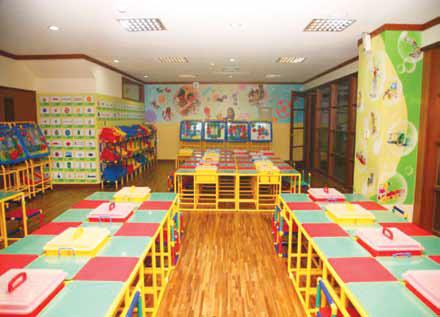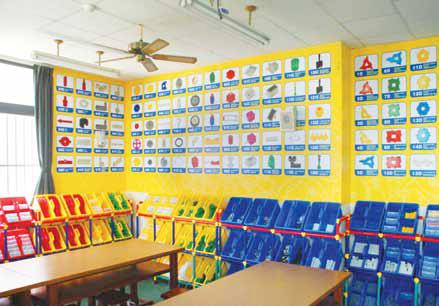 By Anil Goyal, Director, Mexus Education
By Anil Goyal, Director, Mexus Education
Technological innovations in education are set to revolutionise the traditional labs in schools. The new generation, future digital labs seek to re-invent the pedagogy and learning experience
Although India is trying its best to bring as many children as possible under the fold of education, issues relating to the quality of pedagogy employed, and not to mention the ineffective teaching infrastructure, continue to produce halfbaked results. Our traditional rote-based education system has been inadequate in nurturing students’ inherent curiosity and quest for exploring knowledge. Going forward, this has made them ill-equipped for the dynamic work-situations of today that require application of knowledge for out-of-the-box, resourceful and instant decision-making.
As the business environment becomes increasingly dynamic and competitive, the gap between industry expectations and skills is widening. This situation cannot be salvaged with late stage interventions through learning programmes and trainings; skills need to be developed from the very beginning with the help of newage labs. Clearly, if the present stock of students had a learning experience better suited for a hyper-competitive, every changing work environment that encouraged independent assimilation, reasoning and innovation, India’s workforce would have been radically different today.
 |
 |
The missing elements
School laboratories are not a new or breakthrough concept in the Indian schooling system. Whether public or private, schools were always required to house science labs at higher secondary levels. Of course, the adequacy of these labs is questionable, since they largely depend upon how well schools were funded. Essentially, the significance of ‘practicals’ or experiential learning has always been recognised in our system, if not applied in spirit. The idea that each child is unique and that a combination of learning methodologies reaching out to all seven learning orientations is required for learning, can revolutionise Indian schooling today. A complete learning system by complementing classroom learning practices with engagement through activities is the master key to unlock the minds of all children by infusing interest and interactivity into an experiential mode of learning.
Experiencing lessons first-hand augments curiosity among children about why things are the way they are; a much more effective method of learning than spoon-feeding them with knowledge. Through hands-on activities and by putting theory to practice, students can gain knowledge of subjects, and understand their relevance with improved retention and recall. There are several schools in India with high-tech laboratories which team up with existing infrastructure in schools to reinvent pedagogies, with surprising results.
Bringing the change
More and more schools are now taking up experiential activities through ‘Digitised Activity Lab’ sessions to educate students that study between grades 4 and 9. These labs facilitate activity-based learning aided by audio-visual and kinesthetic simulation, which motivates, involves and connects with students in process of learning through interactivity.
The sessions complement instructions on subjects taught in class and do not upset classroom learning, thereby allowing students to revise theoretical concepts in a meaningful manner. In addition to hundreds of practical sessions, labs are also an avenue through which children can access learning resources, tools, kits and activities that schools do not generally provide.
These labs fundamentally serve the purpose of development of a scientific temperament among children, by encouraging them to explore new concepts through investigation and reasoning. Previously, the responsibility of imparting education was shouldered solely by teachers and quality lapses occurred when they could not live up to what was expected of them. The virtue of experiential learning is that students are now responsible for how much they learn; and they will, because learning has been made fun and interesting. The time invested by teachers in reiteration of concepts can be invested qualitatively in strengthening fundamentals by means of experiential learning.
The labs facilitate schools to grab and retain the interest of students in Science and Technology by allowing them to experiment scientific theories and knowhow for problem solving through project-based activities leading to early development of ‘Design Thinking’.
Conclusion
By enhancing teaching methods to incorporate experiential education, it is possible to ensure better outcomes in terms of reality-orientation and employability of students, by motivating them to pursue science and technology oriented fields in the future. Experiential learning through modern-age labs is perfectly poised to prepare solution seeking, industry-ready professionals contributing to the intellectual wealth of the country.





















